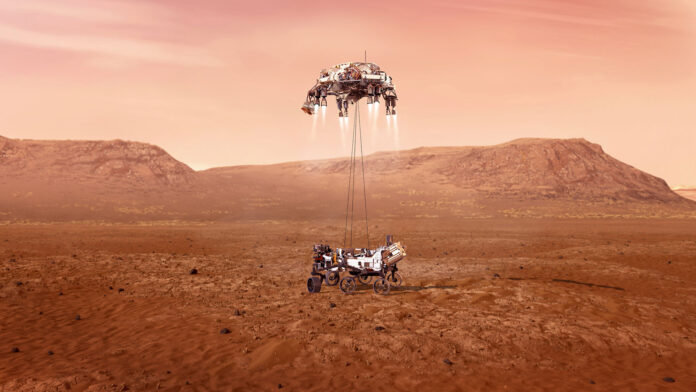Introduction
In a historic moment for space exploration, humans have successfully landed on Mars, marking a monumental achievement for mankind. After years of meticulous planning, scientific advancements, and technological innovations, this breakthrough has opened up a new chapter in our understanding of the universe. In this blog post, we will delve into the details of this extraordinary feat, exploring the significance of human presence on Mars and the potential implications for future space missions.
A Giant Leap for Mankind
The successful landing of humans on Mars represents a giant leap for mankind. It demonstrates our indomitable spirit of exploration and our relentless pursuit of knowledge. This momentous achievement is the culmination of decades of space research and development, starting with the first unmanned missions to Mars, followed by robotic rovers, and now the ultimate milestone of human presence.
The ability to send humans to Mars has significant implications for our understanding of the Red Planet. With astronauts on the ground, we can gather real-time data, conduct experiments, and explore the Martian environment in ways that were previously impossible. This leap in exploration promises to unlock a treasure trove of scientific discoveries, from studying Mars’ geology, atmosphere, and potential signs of past or present life.
Technological Advancements and Challenges
Achieving this landmark feat required an array of technological advancements and overcoming numerous challenges. Let’s delve into some of the key factors that enabled humans to land on Mars:
Advanced Spacecraft: The development of sophisticated spacecraft capable of long-duration space travel and safe landing on Mars was essential. These spacecraft incorporated advanced propulsion systems, life support systems, and precision landing technologies to ensure a successful touchdown.
Navigation and Communication: Navigating through the vast expanse of space and maintaining communication with Earth presented significant challenges. Advanced navigation systems, coupled with deep space communication networks, allowed for precise trajectory calculations and real-time communication between astronauts and mission control.
Life Support Systems: Sustaining human life during the journey and on Mars required advanced life support systems. These systems provided breathable air, water, and food while managing waste and recycling vital resources.
Radiation Protection: Mars’ thin atmosphere offers limited protection from harmful radiation. Developing efficient radiation shielding and protective measures to safeguard astronauts’ health during the journey and on Mars was crucial.
Planetary Entry, Descent, and Landing: Overcoming the complex entry, descent, and landing phase on Mars was a critical challenge. Advanced heat shields, supersonic parachutes, and retropropulsion systems were employed to slow down the spacecraft and ensure a safe landing.
Implications for Future Space Missions
The successful human landing on Mars paves the way for future space missions and opens up a multitude of possibilities. Some of the key implications include:
Scientific Exploration: With astronauts on the Martian surface, we can conduct in-depth scientific studies, collect samples, and analyze them in real-time. This hands-on approach will greatly enhance our understanding of Mars and its potential for supporting life.
Interplanetary Colonization: The achievement of human presence on Mars brings us one step closer to realizing the dream of interplanetary colonization. By establishing sustainable habitats and utilizing local resources, we can lay the foundation for a future human civilization beyond Earth.
Space Technology Advancements: The technologies developed for Mars missions will have spin-off benefits for various other sectors, including medicine, energy, and communication. The challenges encountered during the journey and on Mars will drive innovation and push the boundaries of human capabilities.
Conclusion
The successful landing of humans on Mars represents a monumental achievement for humanity. It signifies our relentless spirit of exploration, pushing the boundaries of what we thought was possible. With humans on the Martian surface, we have taken a giant leap toward unraveling the mysteries of the Red Planet and the universe at large.
This historic milestone is a testament to the incredible advancements in technology, international collaboration, and the unwavering dedication of scientists, engineers, and astronauts. It inspires us to dream bigger and aim higher, as we continue to push the frontiers of space exploration.
As we move forward, it is crucial to ensure the sustainability of our efforts, respecting the Martian environment and prioritizing ethical considerations. The successful human landing on Mars ignites our collective imagination and fuels our ambition to further explore, discover, and expand our presence in the cosmos.
In conclusion, the human landing on Mars is a monumental achievement that propels us into a new era of space exploration, ushering in a future where humans become an interplanetary species.


